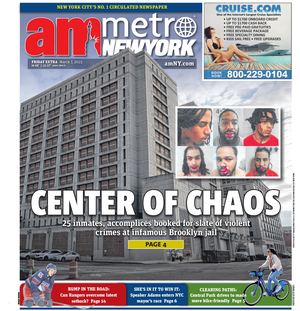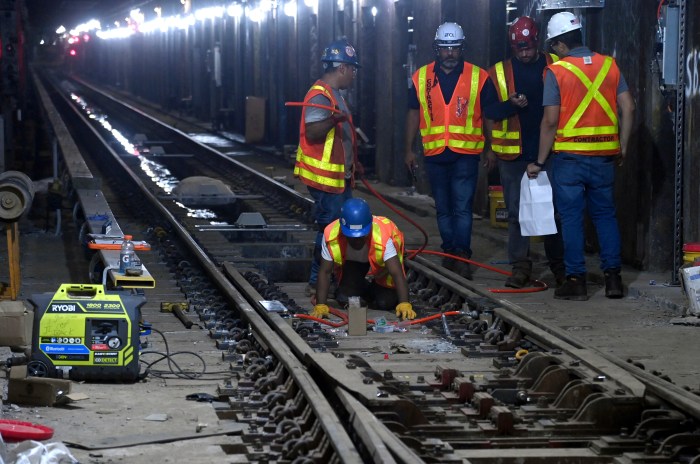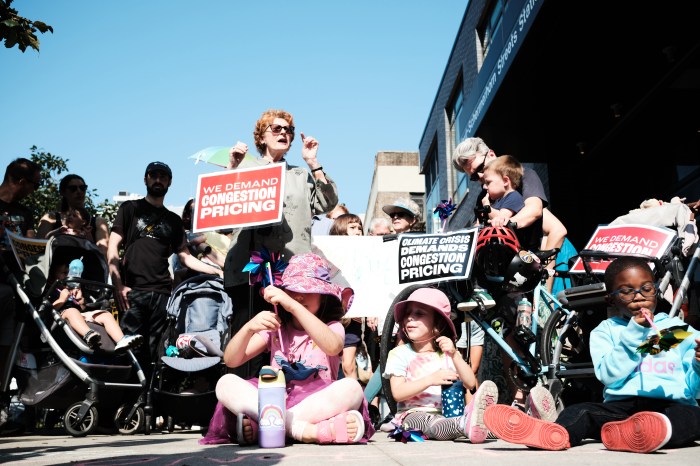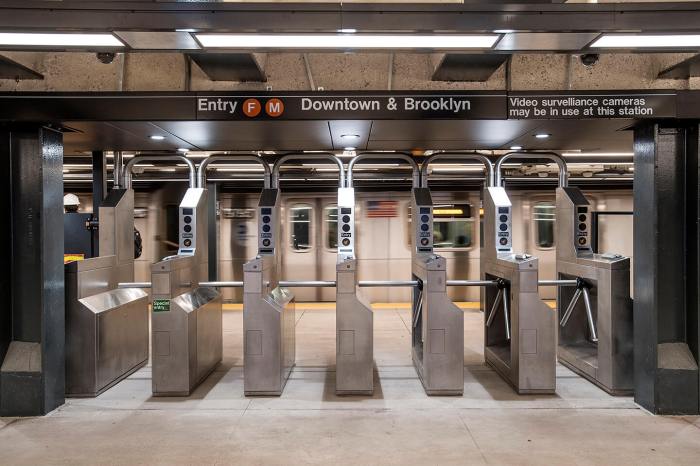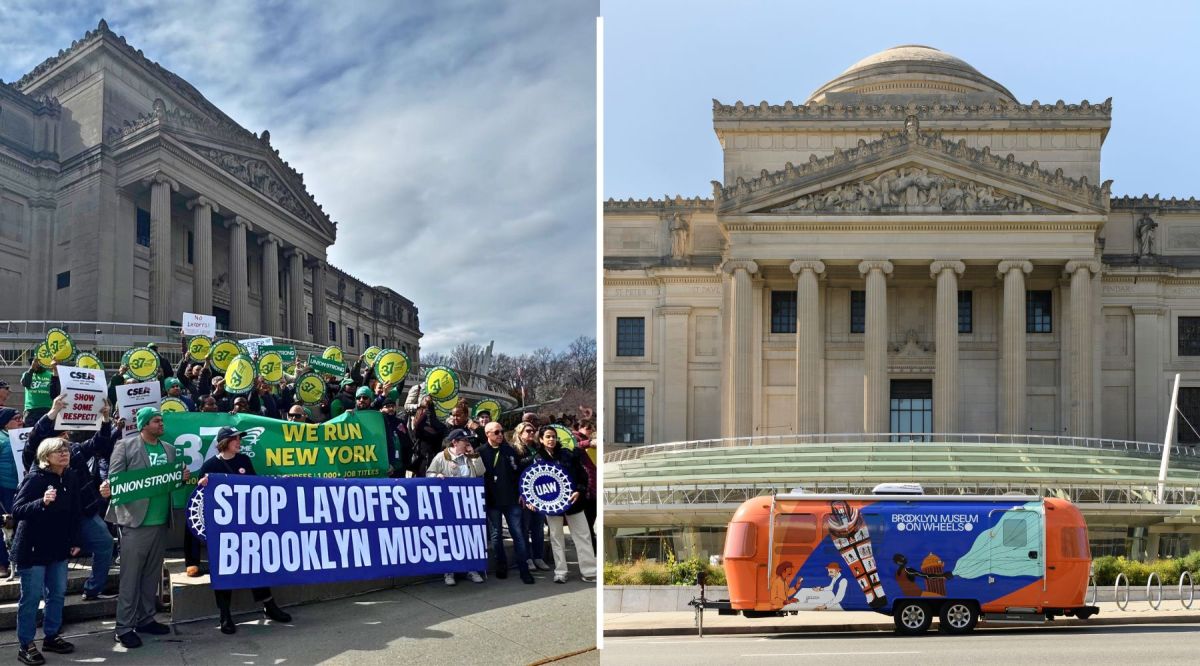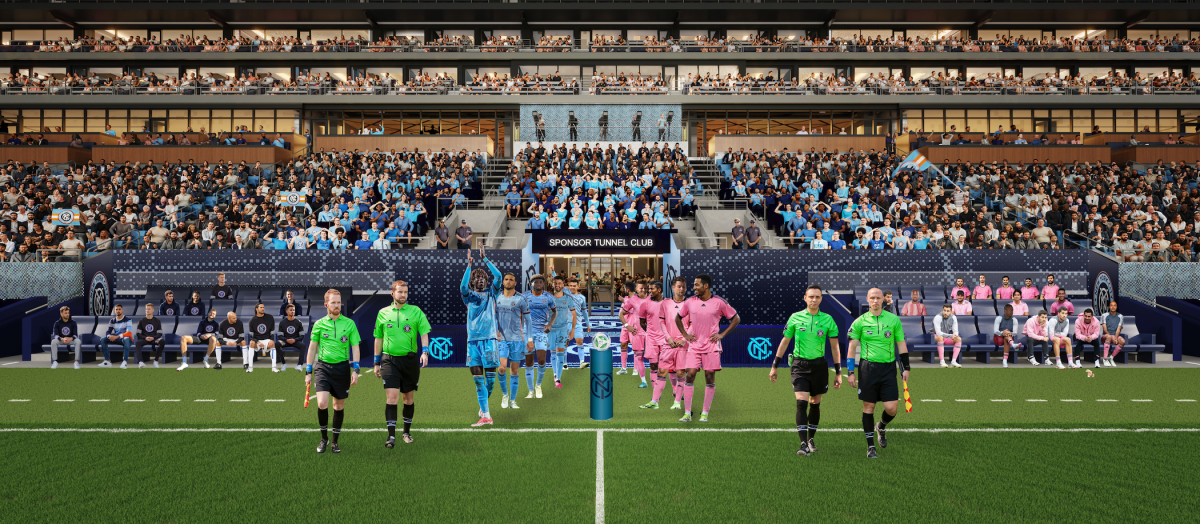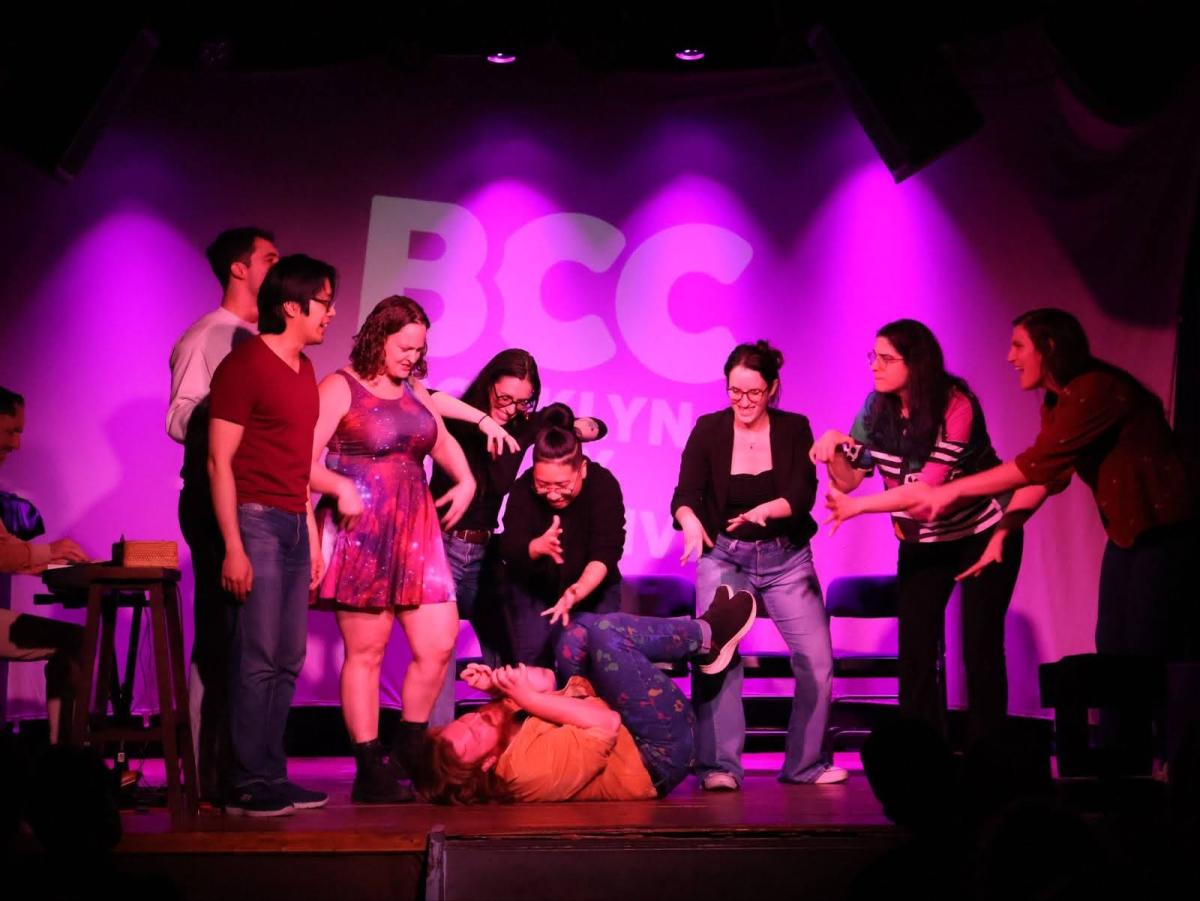Gov. Kathy Hochul’s decision to pause on congestion pricing is now facing a third legal challenge, this time from advocates for straphangers with disabilities.
The governor’s June 5 pause of the Manhattan tolling scheme put $16.5 billion of mass transit capital improvements on ice, including $2 billion that would have built elevators and other accessibility upgrades at 23 subway stations. Now, disability rights groups are adding their voice to the mix in court, urging a judge to reinstate congestion pricing to get the funding back on track.
“Abled-bodied people would be disgusted with waiting for an essential right needed for day-to-day life,” said Dr. Sharon McLennon Wier, executive director of the Center for the Independence of the Disabled – NY (CIDNY). “Why should the Disabled Community continue to wait!”
The new suit is set to be filed on Monday, Sept. 30, in Manhattan Supreme Court and accuses the MTA of violating the New York City Human Rights Law by cutting funding for new elevators and other accessibility upgrades as it triaged the current capital plan to cut $16.5 billion, which was set to be funded by revenues from congestion pricing. The MTA in June called accessibility upgrades “lower priority” when discussing what projects needed to be deferred.
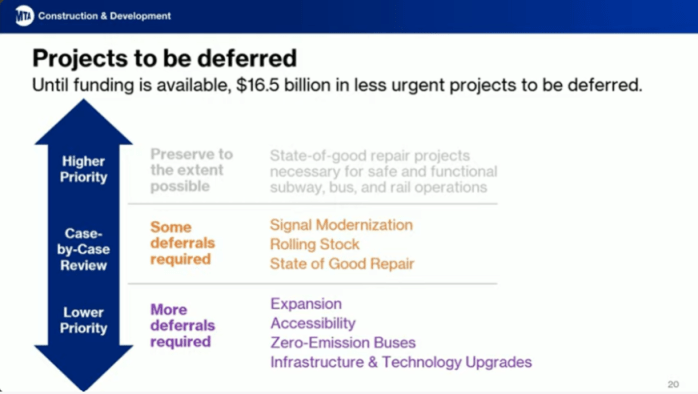
Plaintiffs include CIDNY, the 504 Democratic Club, McLennon Wier (who is blind), and East Village resident Annalisa Rivera of the East Village, a wheelchair user. The MTA and its leaders are named as defendants; Hochul is not named.
The plaintiffs are requesting a judge order the MTA to reverse its June Board vote suspending accessibility spending, “even if it requires reinstatement of the Congestion Pricing Program in order to obtain the funds necessary to revive that portion of the Capital expense program.”
The MTA is required under the terms of a 2022 settlement with disability advocates to make 95% of its subway stations fully accessible by 2055, a full 65 years after the passage of the Americans with Disabilities Act, which mandated public transit facilities not discriminate against disabled people.
But today, only 30% of the subway’s 472 stations are considered accessible, a figure that lags well behind other US and global cities. And on any given day, many of those elevators could be unexpectedly out of service, something for which advocates are also presently suing the MTA.
The plaintiffs note that in reaching the 2022 settlement, the MTA ran with the assumption that “Congestion Pricing would provide the capital funds necessary” to fund the upgrades.
“Knowing that voting to ‘pause’ Congestion Pricing would undercut the promises made…the MTA went ahead with approving a ‘pause’ on June 26, 2024 without any plan for even a discussion about an alternative means of financing the promised accessibility plans,” reads the suit, “and immediately ceased work on elevator installation projects which had been commenced.”
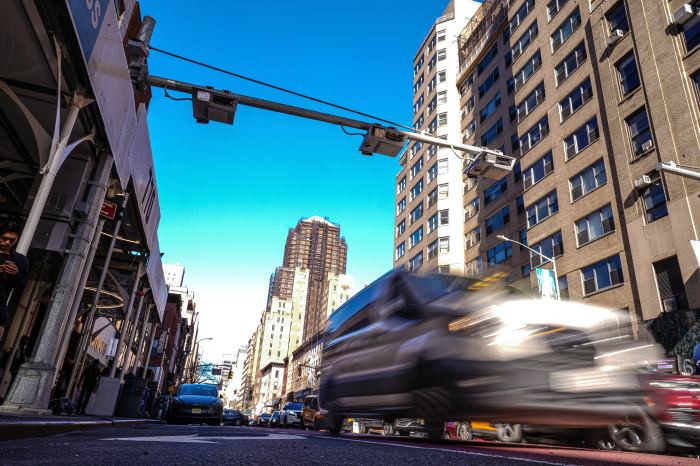
A spokesperson for the MTA said the agency remains in compliance with the 2022 ADA settlement.
“While we have not formally received the lawsuit, the MTA is in compliance with the ADA settlement agreement from 2022 and is delivering accessibility projects five times faster than ever before, completing 28 stations since 2020 – more than double the number of ADA stations completed in the previous six years” said the spokesperson, Joana Flores. “The proposed 2025-2029 Capital Plan keeps this accelerated pace with at least another 60 subway stations to be made accessible, bringing the system to greater than 50% accessibility, and serving nearly 70% of riders.”
While the new $68 billion capital plan includes money for dozens of new elevators, only about half of the stations where they’ll be sited have yet been identified – and the agency only has about half the money it needs to fund its capital needs.
A spokesperson for Hochul wouldn’t specifically address the litigation.
“Like the majority of New Yorkers, Governor Hochul believes this is not the right time to implement congestion pricing,” said Hochul spokesperson John Lindsay. “We can’t comment on litigation.”
The suit is the third challenging Hochul’s eleventh-hour decision to pause congestion pricing. The other two suits — which argue the pause violates the original statute authorizing congestion pricing and violates state environmental law — were filed in July and were heard for the first time by a judge on Friday.
The judge, Arthur Engoron of Manhattan Supreme Court, rejected Hochul’s motion to dismiss the suits, allowing them to proceed to the next stage, where the governor’s attorneys must make their case in public for why they undertook the pause.
This story has been updated to accurately reflect the list of plaintiffs.
Read More: https://www.amny.com/nyc-transit/
